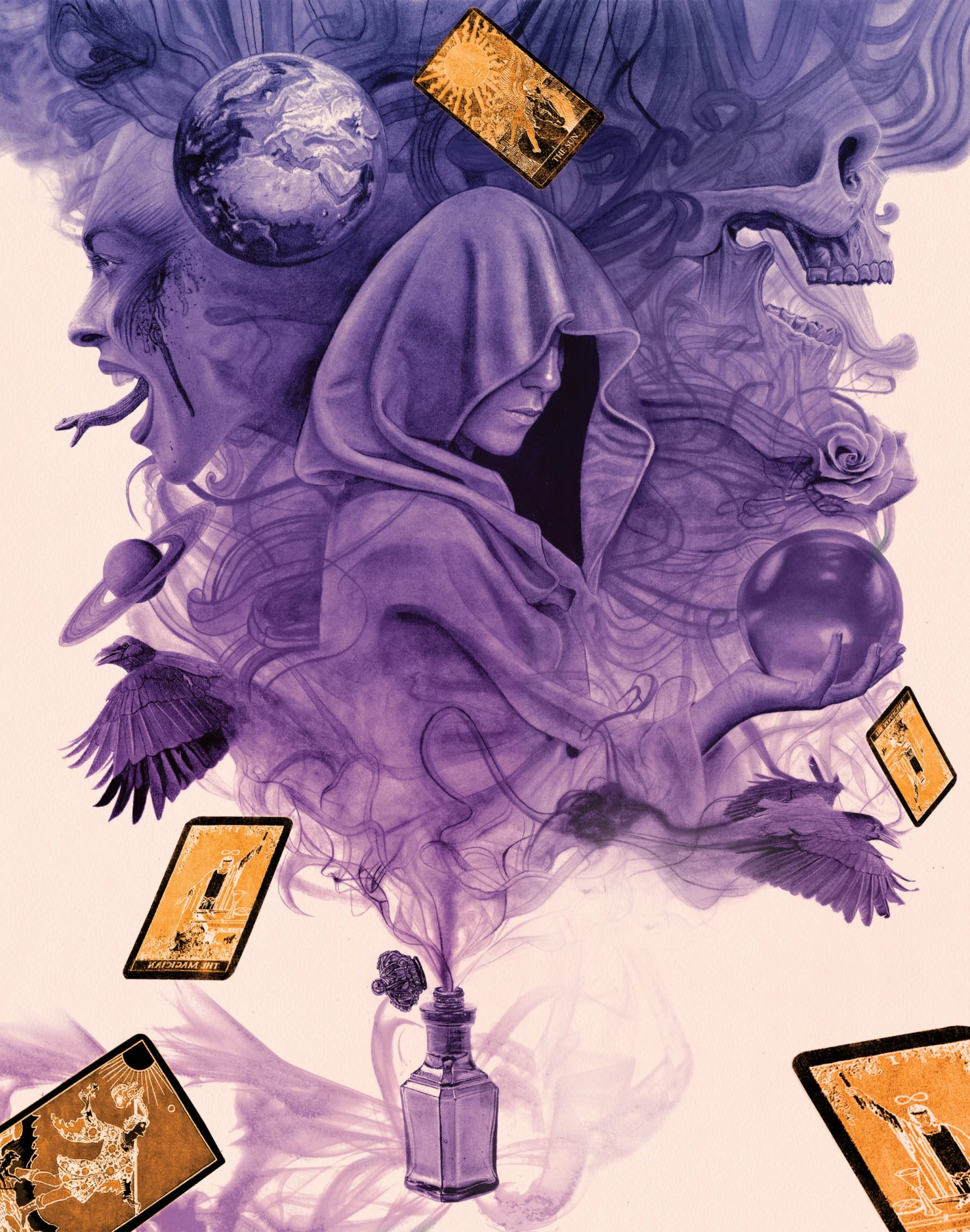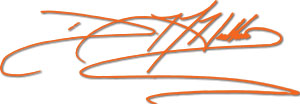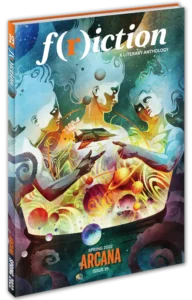
Editor’s Note
Words By Dani Hedlund, Art By Zach Meyer
Dear lovely reader,
Until last year, when I thought of “magic,” my mind filled with countless fantasy novels—magic schools, bearded wizards, fairies eager to swanoodle your wee babe. Sure, I’d heard about people who practiced magic today. But I imagined them as angsty teenagers dressed in black leather and whispering poetry-masquerading-as-magic under their breath, managing only to conjure raised eyebrows from passersby.
Did a part of me hope I was wrong, that someday I’d stumble upon a magical door and be transported to Narnia? Of course! But my pragmatic mind knew that such things only existed between book covers.
All of that was about to change in 2019, with a story submitted to us (and later published in F(r)iction #16, our Monsters issue). Debut talent Ellen Azevedo wrote about a string of disappearances of customers who received tarot readings, narrating the story entirely through Yelp reviews. Everyone loved it, and I started to wonder, why did this piece of fiction enrapture so many?
Digging into the history of tarot and chatting with any witches I could talk into a Zoom meeting, I realized that all around me, people with whom I’d been friends and colleagues for years had tarot decks and even pulled a card daily. In fact, in the 2014 census, 1–1.5 million people (.4% of Americans) identified as Wiccan or Pagan, and if social media is any indicator, the #witchesofinstagram hashtag shows a huge increase since then.
My mind spun with each article I devoured, and so began the cracking open of a magic door of its own. Not in some dilapidated alleyway but inside my own mind. And like all mental doors, it allowed me to see things that had been there the whole time . . .
I spotted the dreamcatcher in my mum’s house, innocuously catching the light (and bad dreams) for years. My friend showed up to happy hour with the utter conviction that his grandfather was haunting his living room. Finally unpacking my bag from a trip to Scotland, I found the bowl given to me by the old lady who lived above me in Edinburgh, who had instructed me to fill it with milk and leave it on my windowsill for the faeries.
All around me, the belief in more swirled.
I often use this anthology to explore cultural themes that fascinate or even irk me (both of which this topic did!). So, we set out to answer the question I posed nearly two years ago: why are so many people drawn to the arcane?
From Holly Black’s quiz to discover if your wife is a changeling (or just independent) to stunning creative nonfiction about how tarot changed a young author’s life, this issue explores every type of arcana we could get our hands on. Medieval witches, hauntings, stage magicians, a comic about a star venturing to take her place at the cauldron of creation—all these pieces aim to creak open magical doors in our minds.
As I look through these literary gems, what surprises me is not the range of magic, but what they all have in common. Each pulls on themes of rebellion, empowerment, and becoming “other” so that we can break through systems that strive to hold us down. And in that light, is it surprising that magic is on the rise in the world, that tarot decks are selling like hotcakes? For as civil and cultural unrest increase (certainly we can all agree it’s been a rough couple of years), doesn’t it feel natural that people would seek a way to change themselves, and the world, when the system seems incapable?
If you’re like me—still more skeptical than converted—I hope these beautiful stories and art inspire you to wonder about your own connection to the unseen forces in the world, to connect more empathetically with believers of all kinds, and to remember that there is magic in everything, including the magic of human imagination and our endless power to change and innovate.
Cheers,

Dani Hedlund
Editor-in-Chief
